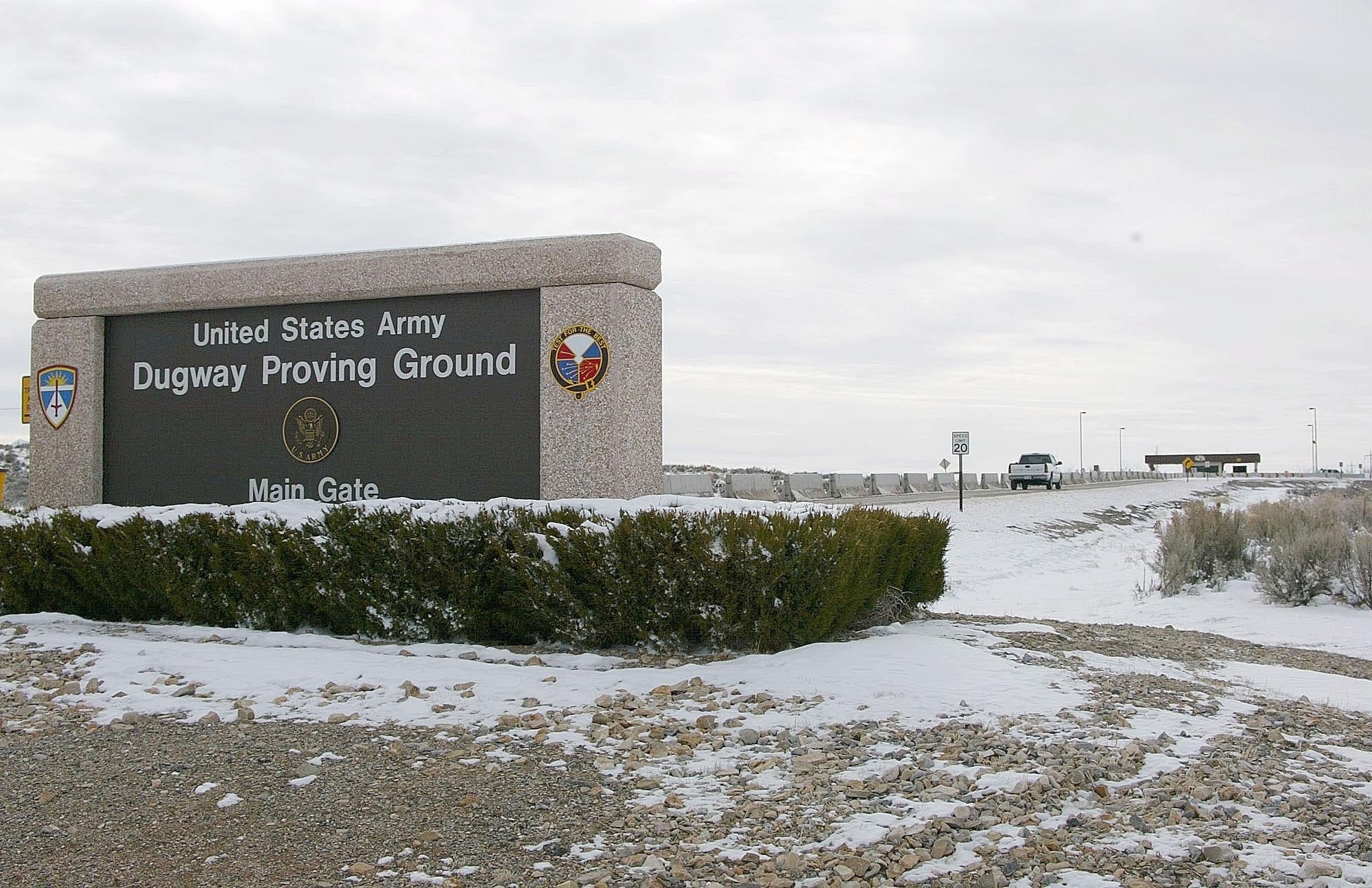The highest-ranking officer implicated in last year’s scandal involving the Pentagon’s botched handling of anthrax has received career-killing discipline from the Army, USA Today has learned.
The Army reprimanded Brig. Gen. William King after finding fault with his command of its laboratories at Dugway Proving Ground in Utah. A reprimand prevents an officer from receiving another assignment, effectively ending his career, according to a defense official familiar with King’s case but not authorized to speak publicly about it.
"Brig. Gen. King was reprimanded for failing to take appropriate action to respond to and mitigate lapses in safety and protocol while serving as commander of Dugway Proving Ground," Lt. Col. Jennifer Johnson, an Army spokeswoman, said in a statement.
Command of operations at Dugway was also transferred to the Edgewood Biological Center at
The moves are likely the final steps in the Army’s attempt to sweep clean the anthrax mess and hold accountable the officials responsible for it. Nine civilians were demoted, suspended or lost supervisory responsibilities following an investigation and stinging report. Another soldier, whose name was not disclosed by the Army, was also disciplined.
The Army’s actions stem from problems with what Pentagon refers to as the "high-risk, zero-defects world of biological select agents program." Last year, the
The samples were sent to labs to help them calibrate detection equipment and to help devise countermeasures to the toxin. If inhaled, live anthrax spores can be lethal.
The Army blasted the poor lab practices and a "culture of complacency" at Dugway. It recommended that the soldiers and civilians involved be held "accountable for their failures."
Some of the problems investigators found at Dugway: officials appointed a biosafety officer who lacked training and education for the job; failure to conduct routine tests on surfaces to ensure pathogens hadn’t been spread outside secure cabinets; and staff who "regularly manipulated data" certifying pathogens being shipped were safe for use without special protective equipment.
After the news of the bungled handling of dangerous pathogens broke, the CDC suspended Dugway from producing anthrax for export to other labs.
The report singled out King for criticism, saying in the report that he had "repeatedly deflected blame and minimized the severity of the incidents." Moreover, it found King lacked introspection and that he failed to recognize the scope and severity of the incidents that occurred during his command at Dugway.
Despite the problems at Dugway, King was promoted to general and currently commands the 20th Chemical, Biological, Radiological, Nuclear, Explosive Command at the Army’s Aberdeen Proving Ground in Maryland.
King, who commanded Dugway as a colonel from July 2009 to July 2010, was not available for comment.
A 2015 USA Today Network investigation discovered hundreds of additional accidents with dangerous pathogens at corporate, university, government and military labs nationwide. It also showed that the system of self-policing and diffuse oversight obscured failings by facilities and regulators.




